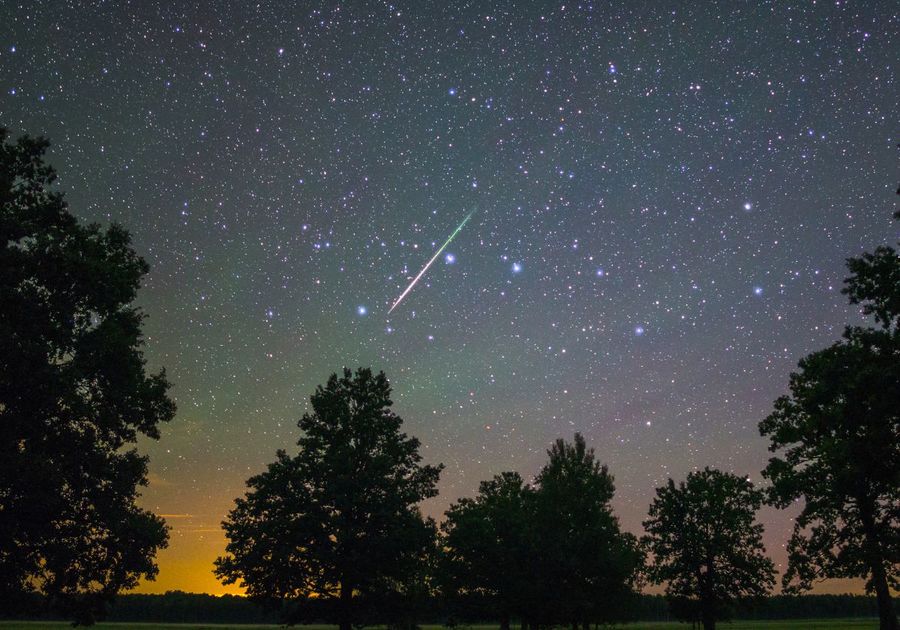Watching a meteor zoom across the sky is like watching a magical, silent firework display. But when one meteor typically streaks every few hours, the magic can wear off quickly, especially for children. Fortunately for sky watchers, research from NASA has identified the Perseid meteor shower as the most magical, to produce the year’s most dazzling display of shooting stars that is a favorite of many backyard sky watchers (including my family). This year skywatchers can expect to see approximately 90 meteors per hour.
Every year in early to mid-August, Earth passes through a cloud of dust sputtered off the Comet Swift-Tuttle as it approaches the sun. Meteoroids (which is what dust particles are called while in space) hit our atmosphere at a whopping 132,000 mph! Most of the meteoroids are tiny, about the size of a sand grain. Almost none of the fragments hit the ground, but if one does, it's called a meteorite.
The Perseid meteor shower usually occurs July 14 to September 1. However, peak for the 2024 shower will be August 12-13. Astronomers recommend viewing between the hours of 10:30 PM to 4:30 AM local time. The meteors radiate from a point in the constellation Perseus, but will appear in all parts of the sky.
How To View the Free Show
To get the most from viewing the shower, get away from city lights. Personally, our backyard worked fine once we turned off our lights. There is no special equipment needed to see the show. In fact, it's easier to view it with your naked eye than through the lens of a telescope or binoculars. Enjoy a comfortable reclining lawn chair or grab a blanket (lying down gives you the widest view of the sky) and look upward in a dark sky. Remember, your eyes can take as long as twenty minutes to truly adapt to the darkness of night. So don’t rush the process. All good things come to those who wait. Enjoy the show!
Want to know more? You can find out more about the Perseid meteor shower and all kinds of other cool things about space at spaceweather.com, www.space.com, www.astronomy.com and Earth Sky.



